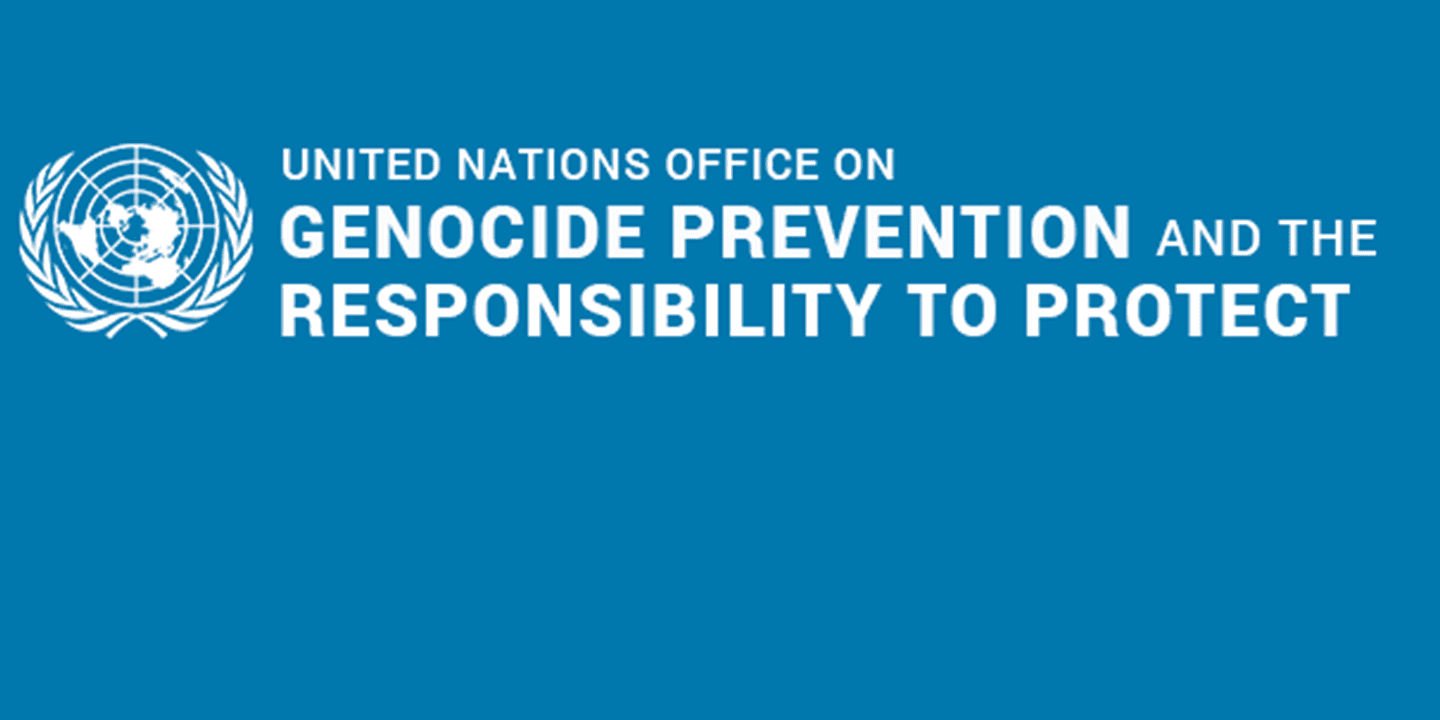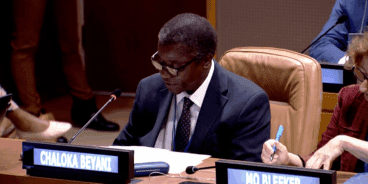
Urgent action needed to address Sudan crisis amid increasing risk of genocide and related atrocity crimes, warns UN Special Adviser on the Prevention of Genocide
The United Nations Special Adviser on the Prevention of Genocide, Alice Wairimu Nderitu, has expressed her concern at the persistent and ongoing levels of identity-based violence in a number of states and regions in Sudan, calling for urgent action to halt the increasing risk of the spectre of genocide and related atrocity crimes.
“After four months of continued fighting, with widespread human rights violations and abuses, this has led to an unacceptable level of deaths, injuries, and displacements of thousands in a conflict with strong identity-based components,” said Special Adviser Wairimu Nderitu in a statement alluding to the widespread violence in the capital Khartoum, Darfur (specifically Nyala, El Fasher, Kreinik and El Geneina), Kordofan, and the Blue Nile states.
Special Adviser Wairimu Nderitu reiterated her earlier concerns, expressed in her statements on 8 September 2022, 3 November 2022, and 13 June 2023, that inter-communal and ethnic-based violence, if not prevented or halted, could escalate and engulf the entire Sudan in a civil war, with high risks of genocide and related atrocity crimes being committed.
In her view, the conflict in Sudan, with a dire humanitarian situation and a concerning security vacuum and protection gap, has the capacity to trigger violence in the entire region, including along ethnic lines, which would constitute an aggravated risk of such crimes – a risk heightened by ongoing proliferation of illegal small arms and light weapons.
The Special Adviser is particularly alarmed that disputes between the ethnic communities, rooted in long standing grievances over land ownership and ethnic representation, are being exploited by armed groups, including the Janjaweed and other rebel armed groups, which have allegedly been retaliating against ethnic communities based on their ties to the main parties to the conflict – the Sudanese Armed Forces (SAF) and the Rapid Support Forces (RSF). These attacks, if confirmed, could amount to war crimes and crimes against humanity.
“In Darfur, innocent civilians are being targeted on the basis of race,” affirmed the Special Adviser.
She noted that in Darfur hundreds have reportedly been killed and many more injured in clashes between members of different tribes, in addition to looting and burning of houses, as well as attacks on medical facilities in El Geneina. Over the past months, the Special Adviser has received reports of large groups of armed men who perpetrated repeated attacks in that same location. The attackers destroyed houses, including the residence of the Sultan of the Masalit tribe. She also received reports of the RSF and allied Arab militias summarily executing dozens of ethnic Masalit and injuring many more in Misterei, West Darfur.
“Tensions between ethnic communities, including ethnic Arabs and ethnic Masalit, which are not new in Darfur, are used as a justification for reprisal in this context of spiralling violence. This is of utmost concern in a situation in which the risk of further identity-based violence remains very high,” alerted the Special Adviser, expressing concern at reports that ethnic leaders at the local level are perpetuating the violence.
United Nations response efforts, including delivering humanitarian assistance, have been challenged by insecurity, looting and bureaucratic impediments. Despite these hurdles, United Nations agencies, including WFP, UNHCR, UNICEF, WHO, and humanitarian partners have reached millions of people in accessible areas with life-saving humanitarian assistance.
Of great concern, too, are further reports outlining violations and abuses of international human rights and humanitarian law committed by the RSF and the Sudanese Armed Forces, including, among others, attacks against churches and the clergy, targeting of the Masalit men and older boys, and sexual violence. The United Nations Office of the High Commissioner for Human Rights has documented testimonies of unlawful killing, arbitrary detention and enforced disappearance, among other violations, decried by the High Commissioner in a statement issued on 15 August 2023.
“All parties to the conflict, including armed groups, must lay down their weapons and cease their targeting of civilians immediately. Moreover, all parties to the conflict have a responsibility to protect civilians as well as to respect international human rights and humanitarian law,” noted Special Adviser Wairimu Nderitu, alarmed by the total disregard by the parties to the conflict of international humanitarian and human rights law.
“In the current highly concerning and deteriorating situation, it is essential that the international community uses all available tools to prevent any further escalation,” stated the Special Adviser, calling, especially, on the Trilateral Mechanism to take timely action.
“The African Union, the Intergovernmental Authority on Development and the United Nations Security Council have a special responsibility and must lead all possible efforts towards a stabilization of the situation and towards the attainment of the highest possible levels of protection for all populations at risk. All response mechanisms should be considered,” urged the Special Adviser.
In this regard, Special Adviser Wairimu Nderitu appealed for the full respect of the Jeddah Declaration of Commitment to Protect the Civilians of Sudan, in which the parties to the conflict affirmed their responsibility to respect International Humanitarian Law and international human rights law, including obligations to distinguish at all times between civilians and combatants and between civilian objects and military targets.
The Special Adviser also reiterated her long-standing position that accountability constitutes an essential component of prevention. She insisted that “accountability processes must be supported, human rights violations and abuses require independent and comprehensive investigations, and all perpetrators must know that they will be brought to justice.”
Special Adviser Wairimu Nderitu also insisted that “impunity for serious violations of international human rights, of genocide and related atrocity crimes, or of their incitement, constitutes a risk factor for commission of further atrocity crimes.”
“Impunity can constitute a trigger for further violations and can undermine any effort to strengthen protection for those most in need. It is essential that both national actors and the international community spare no effort in their support of full accountability for human rights violations in the country,” stated the Special Adviser, noting that this includes support to the work of the International Criminal Court Prosecutor in Darfur, which she considers instrumental in this direction.
Special Adviser Wairimu Nderitu reiterated her call on the people of Sudan, leaders, civil society, and young people alike to work together to enhance trust-building and social cohesion throughout the country. She also renewed her call on religious leaders and other actors to use their voices to speak out against hate and to stand in solidarity with the affected communities, in line with the Fez Plan of Action, as well as on tech and social media companies to utilize all tools available to stop the spread of incitement and hatred on their platforms, as stressed in the UN Strategy and Plan of Action on Hate Speech.

